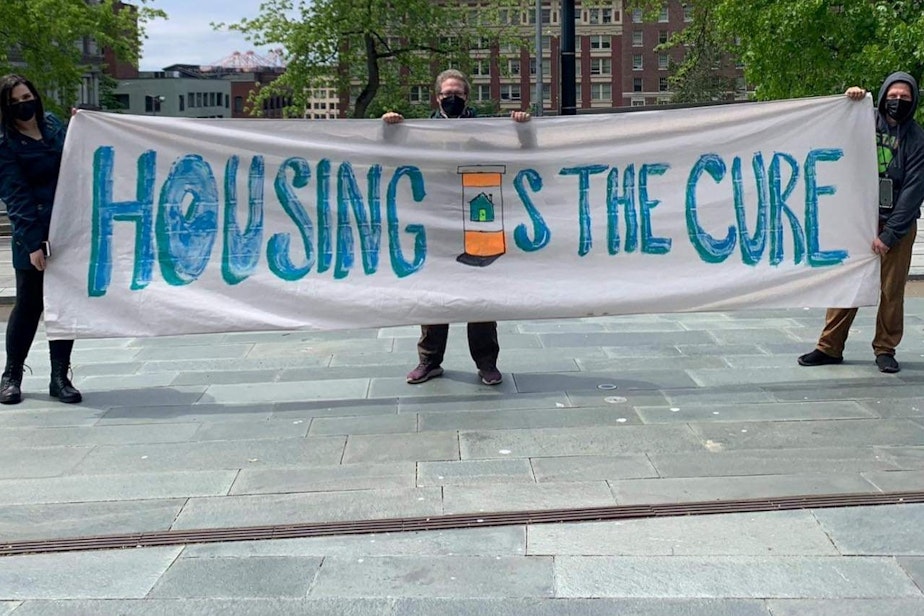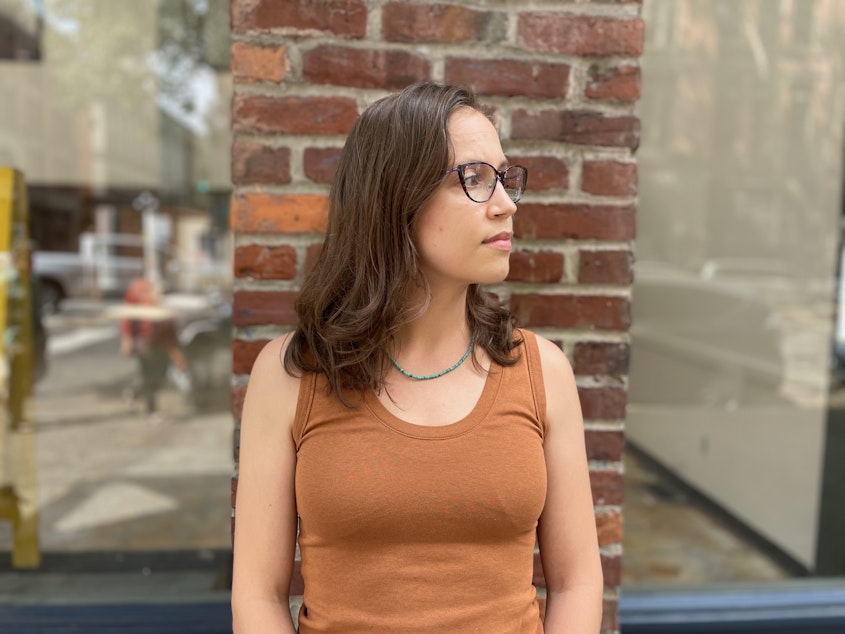Take two for Seattle's social housing initiative

This is going to be the last weekend that backers of Seattle’s social housing initiative can try to gather enough signatures to get on the February 2023 ballot.
House Our Neighbors is backing Initiative 135. Supporters initially aimed to have it on the November ballot, but failed to get enough signatures to qualify. Now they’re aiming for the next election in February and are gathering more signatures to make it happen.
“And we have a bunch of events coming up this weekend, and have no doubt with those and everyone that’s gonna turn in their petitions, that we’ll reach our goal of 10,000 signatures," said Tiffani McCoy with House our Neighbors.
The 10,000 signatures McCoy mentions is the number left for the group to reach the roughly 27,000 signatures required to appear on the ballot.
Sponsored
McCoy gave an example of how the social housing measure would work. Consider an apartment building on Capitol Hill. The owner of that building passes away. The property will likely be sold, and a private developer will come in to redevelop it.
“And all of the residents there are terrified of being displaced. They’ve lived there, some of them, for like decades,” McCoy said.
RELATED: Is social housing the answer to Seattle's affordable housing woes?
This initiative would create a publicly-owned developer that could buy that building, and preserve it as affordable housing. That way, the residents could stay.

Sponsored
I-135 goes a bit farther than apartment management. It proposes to create a public developer office in city hall, funded by the city to set it up. Funding beyond that would have to be developed later. The public developer could take surplus city land to create new housing.
The premise of the social housing that I-135 proposes is different than affordable housing many are familiar with. Under House Our Neighbors' proposal, anyone earning between 0% to 120% of the area median income would qualify to live in the housing. All would pay 30% of their income on housing. The higher rents from higher earners would subsidize lower rents.
Opponents of the initiative, however, argue that this would increase competition in town for limited affordable housing funds. Established affordable housing groups in Seattle say they need more money, not a new way of doing things.
House Our Neighbors will continue to collect signatures through this weekend.




